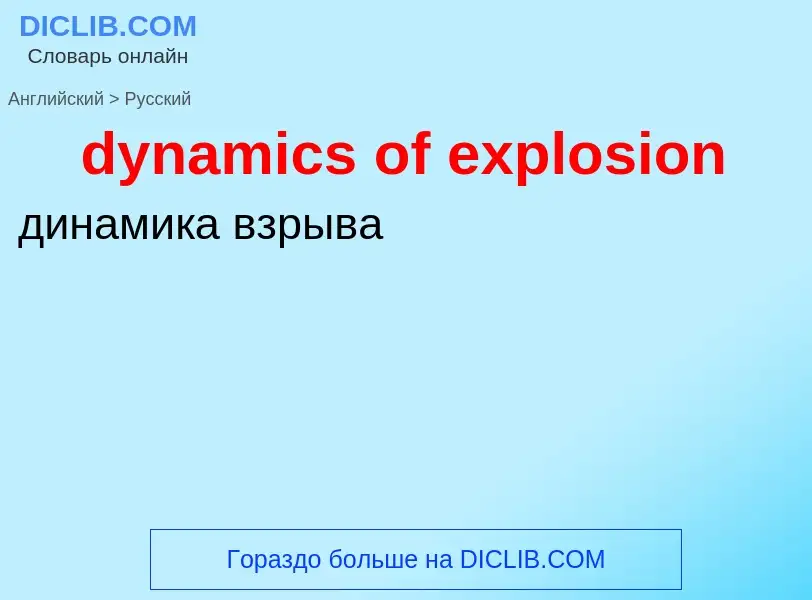Tradução e análise de palavras por inteligência artificial ChatGPT
Nesta página você pode obter uma análise detalhada de uma palavra ou frase, produzida usando a melhor tecnologia de inteligência artificial até o momento:
- como a palavra é usada
- frequência de uso
- é usado com mais frequência na fala oral ou escrita
- opções de tradução de palavras
- exemplos de uso (várias frases com tradução)
- etimologia
dynamics of explosion - tradução para russo
общая лексика
ядерный взрыв
Definição
.
Wikipédia

Molecular dynamics (MD) is a computer simulation method for analyzing the physical movements of atoms and molecules. The atoms and molecules are allowed to interact for a fixed period of time, giving a view of the dynamic "evolution" of the system. In the most common version, the trajectories of atoms and molecules are determined by numerically solving Newton's equations of motion for a system of interacting particles, where forces between the particles and their potential energies are often calculated using interatomic potentials or molecular mechanical force fields. The method is applied mostly in chemical physics, materials science, and biophysics.
Because molecular systems typically consist of a vast number of particles, it is impossible to determine the properties of such complex systems analytically; MD simulation circumvents this problem by using numerical methods. However, long MD simulations are mathematically ill-conditioned, generating cumulative errors in numerical integration that can be minimized with proper selection of algorithms and parameters, but not eliminated entirely.
For systems that obey the ergodic hypothesis, the evolution of one molecular dynamics simulation may be used to determine macroscopic thermodynamic properties of the system: the time averages of an ergodic system correspond to microcanonical ensemble averages. MD has also been termed "statistical mechanics by numbers" and "Laplace's vision of Newtonian mechanics" of predicting the future by animating nature's forces and allowing insight into molecular motion on an atomic scale.




![A simplified description of the standard molecular dynamics simulation algorithm, when a predictor-corrector-type integrator is used. The forces may come either from classical [[interatomic potential]]s (described mathematically as <math> F= - \nabla V(\vec r) </math>) or quantum mechanical (described mathematically as <math> F=F( \Psi(\vec r) ) </math>) methods. Large differences exist between different integrators; some do not have exactly the same highest-order terms as indicated in the flow chart, many also use higher-order time derivatives, and some use both the current and prior time step in variable-time step schemes. A simplified description of the standard molecular dynamics simulation algorithm, when a predictor-corrector-type integrator is used. The forces may come either from classical [[interatomic potential]]s (described mathematically as <math> F= - \nabla V(\vec r) </math>) or quantum mechanical (described mathematically as <math> F=F( \Psi(\vec r) ) </math>) methods. Large differences exist between different integrators; some do not have exactly the same highest-order terms as indicated in the flow chart, many also use higher-order time derivatives, and some use both the current and prior time step in variable-time step schemes.](https://commons.wikimedia.org/wiki/Special:FilePath/Molecular dynamics algorithm.png?width=200)


